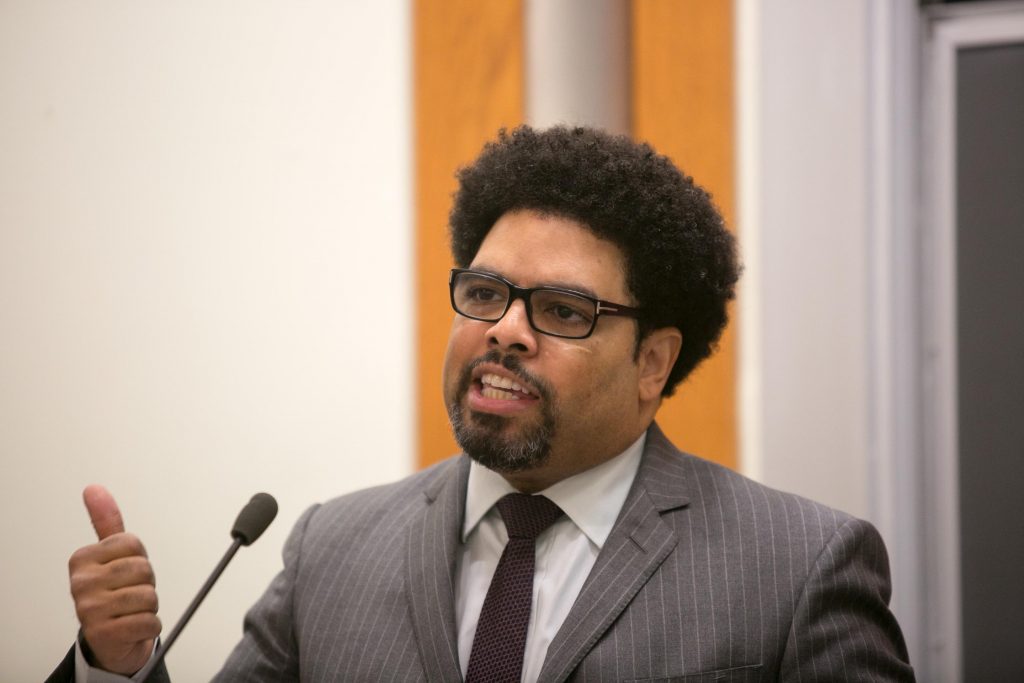It was one of the semester’s most important gatherings—an assembly of nearly two dozen experts convened to analyze the relationship between student debt and college non-completion—and it didn’t disappoint.
Speech by speech, panel by panel, presenters at the November 30 Rappaport Center for Law and Public Policy event exposed and puzzled over the complex social, financial, political, and racial factors that impact the nation’s ability to select, train, and support higher education’s vast and diverse student populations.
The broadly defined topic, “Debt, Degrees, and Democracy: A Critical Look at the Value of College Completion,” was regarded from a variety of perspectives: poverty versus wealth; black versus white; majority vs. minority; stigmatized versus nonstigmatized; typical versus stereotypical; degrees versus certificates; individual responsibility versus civic responsibility; good debt versus bad debt; for-profit schools versus non-profit schools.
As discussants made their way though this thicket, it became evident that any hope of reforming post-secondary education lay in addressing fundamental social norms that impede progress.
“Education is not a magic antidote” capable of solving funding inequalities, wealth disparities, unequal opportunities, and racial inequities, said keynoter Darrick Hamilton, professor of economics and policy at the New School.
An example of the questions raised at the conference was why we place the financial risk for education onto the student. “Taking on debt is uniquely punitive,” said panelist Deanne Loonin of the Legal Services Center and Project on Predatory Student Lending at Harvard Law School. “We have to have a narrative of education as a public good. Otherwise, we’re stuck in individual responsibility” when educating its people should be a nation’s shared obligation.
Others pondered: Who should be able to go to college? How many should go? Who should pay? What is the role of employers? Does the decline of labor unions correspond to the overall decline of worker status in the community? On and on went the provocations.
At the core of much of the day’s discussion was wealth, one’s own and society’s—having it to begin with, acquiring the education to earn it, leveraging it for the greater good. As Hamilton put it, “Wealth gives us choice, freedom, and optionality.”
Among the other attendees were Wil Del Pilar of the Education Trust, Jonathan Glater of the University of California Irvine School of Law, Persis S. Yu of the National Consumer Law Center, Walter Ochinko of Veterans Education Success, and Deirdre Fernandes of the Boston Globe. The event was produced in partnership with the National Consumer Law Center and with the guidance of BC Law Professor Patricia McCoy, formerly of the US Department of the Treasury, where she helped form the new Consumer Financial Protection Agency.


